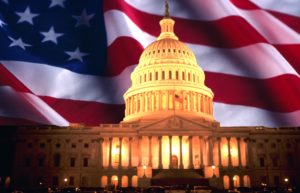Late last week, the House Ways and Means Committee concluded its markup of the GOP tax reform bill (the Tax Cuts and Jobs Act) and voted along party lines to move the measure, 24-16. The core of the House bill reduces the number of individual tax rates, slashes the corporate tax rate and eliminates many deductions and credits.
The bill now will be taken up by the full House of Representatives for debate and vote – likely before the Thanksgiving recess. What are some sensitive issues being discussed in the tax reform bill? Pass-throughs, adoption tax credits, deductibility of state and local taxes (SALT), excise tax and more.
The GOP can only lose 22 votes in the House and whip counts are being held very close to the vest – only five or six Republicans have publicly stated that they are against the bill in the current form (all due to SALT).

Meanwhile, the Senate decided on Thursday to release its own tax reform plan. From the business perspective, the differences largely are about adjusting the dollar dials and creating negotiation items. In other words, politics. The Senate option does delay some positive economic effects, but if that’s what it takes to get a permanent tax reduction in the books so be it! We do want to point out that there are some notable differences between the two versions, particularly on the individual side – including with the estate tax and mortgage deduction, which, again, serve to set up further negotiations.
Senator Todd Young welcomed the effort from the Senate Finance Committee.
“I’m encouraged by the Senate’s proposal to create a tax code that is simpler, fairer and allows hardworking Hoosiers to keep more of what they earn. I’m also glad that this proposal maintains the adoption tax credit that is important to so many Indiana families. As we continue to debate a final tax relief package, I will keep working to ensure Hoosier voices are heard.”
Meanwhile, Sen. Joe Donnelly, didn’t give away his stance: “As I have said, tax reform should create jobs, protect jobs, invest in American workers and benefit middle class families. I will carefully review the Senate proposal and continue to engage with my colleagues and the White House on behalf of Hoosiers as the Senate works on tax reform.”
Donnelly also met on Thursday with the White House Director of the National Economic Council Gary Cohn to discuss his tax reform priorities. Earlier last week, Donnelly participated in another such meeting with White House Director of Legislative Affairs Marc Short and Cohn. President Donald Trump called in for a portion of the event. In that meeting, Donnelly discussed his tax reform priorities and shared a letter that he also sent to Vice President Mike Pence on Tuesday emphasizing that the tax policies should align with the interests of American workers and support companies that invest in the U.S.
Donnelly’s priorities are consistent with his End Outsourcing Act, which would support companies that invest in American workers and penalize companies that ship American jobs to foreign countries.
The Hill reported late last week that “Blue Dog Democrats are lining up in firm opposition to the Republicans’ tax code overhaul, hoping that Tuesday’s election results (particularly in Virginia) will force GOP leaders to reach across the aisle for a bipartisan alternative.”
Donnelly, a Blue Dog Democrat, has not said anything of the kind publicly and has been heavily courted by the Trump administration for his vote.
